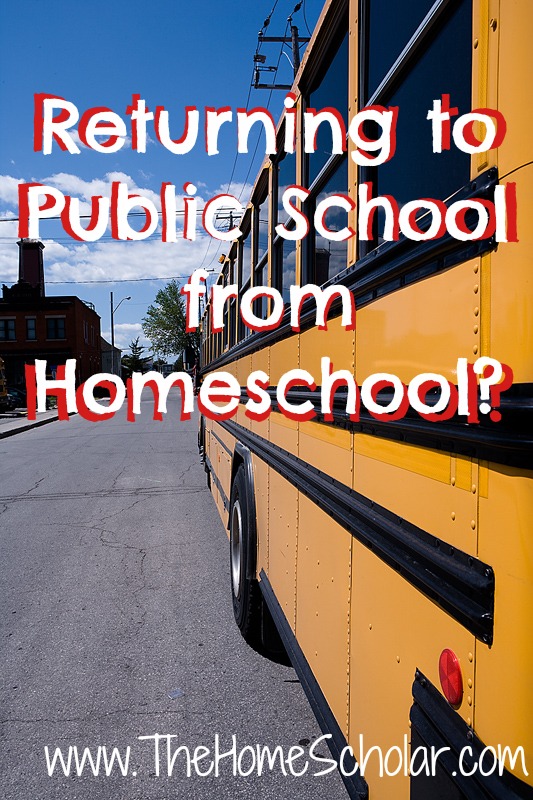Are you thinking about sending your homeschooler to public school? There are some issues you need to consider before returning to public school.
It’s pretty easy for a homeschooler to enter college – they understand homeschooling and are used to seeing children from a variety of unaccredited schools. The accept our homeschool grades and credits and classes, albeit with additional testing and course descriptions.
It’s much more difficult for a homeschooler to enter public high school. They don’t understand homeschooling, and often the only homeschoolers they ever come in contact with are those who have “failed” or feel they can’t be successful at home.
Public schools will most likely not accept your homeschool classes, grades, or credits. They won’t generally accept that your homeschooled classes will fulfill graduation requirements. When you enroll at a public school they may decide your student is a freshman, no matter how much work you did at home.
You can consider an accreditation program or umbrella school, but those may not be accepted either. Some programs are legitimate, but not accepted by local high schools for some reason. Other programs aren’t legitimate at all, but are complete scams, or diploma mills, where you simply pay for a diploma in the hope that it will work.
These accreditation programs will often dramatically increase your work load and record keeping requirements. As they work to be accredited, they have to meet certain requirements for hours of work and goals met, and they shift that work to you, as the parent. It is a lot more paperwork than homeschooling independently.
If you choose an accreditation program, carefully select something reputable. Then double check that the program is accepted by your local high school – even reputable organizations can be disallowed for some reason. Speak to the public high school principal to find out how the classes will be put on the public school transcript. You don’t want them to make all classes “pass/fail” or reduce high quality work in physics to say merely “science requirement was met” on the public school transcript.
If you are thinking there is a possibility of returning to public school, consider an alternative. You might consider dual enrollment at the community college instead. Community college is often a “rated R” environment. On the other hand, public school isn’t exactly rated PG, and the academics at the community college may be more appropriate for your child. Besides, community colleges are much easier for a student to enter than a public high school.
Here are some articles you can read about community college before making your decision.
Community college is not a safe, warm, homeschool-like environment that shares your values and beliefs. On the other hand, it can be a good alternative to the difficulty of returning to public high school after being homeschooled.
It’s hard to get kids into public school from homeschooling, even though it’s easy to get into college. Community college might be a good alternative. It’s a “rated R” environment, but it does at least provide some academics, and it’s easier to get into that public high school, ironically.



🙂 For some types of special needs public high school is not too bad. Various specialists assess, assess, assess some more, there’s a big meeting where you get your input, and then the child is placed. If the child’s needs warrant it, the child goes into an environment that is very similar to home school (small class size, multiple teachers, individualized learning). If the child can go to general education classes but needs a para-educator along, that creates a bubble of protection from the “general population” of students. If the child needs monitoring walking to and from the bus and is eligible for the “short bus,”* that creates a bubble of protection as well. There’s a certain amount of “the squeaky wheel gets the grease” involved in parenting a special needs high school student, but for the most part, the school employees find it invigorating to deal with a parent who cares enough to speak up. If I had my druthers, I’d have my child home again in a heartbeat, I’d ditch academic subjects and she’d be doing tons of activities outside the home but that’s impossible at this point.
>>>>>>>>>>>>>>
* I use “long bus” as a derogatory term because the “long bus” kids who should be shamed for being so ill-behaved that a special needs child isn’t safe with them.
By the way, three quarters into my older daughter’s community college career, she’s yet to encounter anything “Rated R.” They must’ve cleaned up their act after your boy(s) attended the same institution. It’s been a hugely positive experience 🙂
Dear Jo,
That would be my biggest concern with the much-needed attention offered by public school for special needs students. Interacting with the “general population” can be dangerous!
Robin
Assistant to The HomeScholar
Thank the Lord for that, Jo!
I have heard some disturbing stories. I’m thankful that your daughter has had a more wholesome experience.
Robin
Assistant to The HomeScholar